Copier lease vs buy is a common conundrum for many businesses today. For office managers like Olivia, who manages a mid-sized company in Florida, deciding whether to lease or buy a copier isn’t always clear-cut. Choosing the right path can significantly affect the office budget, efficiency, and overall productivity.
Here’s a quick breakdown:
- Leasing a Copier:
- Pros: Lower upfront costs, access to the latest technology, maintenance included.
- Cons: Higher long-term costs, ongoing monthly fees.
- Buying a Copier:
- Pros: Long-term savings, greater control over maintenance.
- Cons: Higher initial investment, risk of obsolescence.
Understanding whether to lease or buy can be the key to modernizing office equipment and making smart financial decisions for your company. We’ll dive deeper into the costs, benefits, and drawbacks in this article, helping you make the best choice for your office’s unique needs.
Copier Lease vs Buy: Key Considerations
When faced with the decision of whether to lease or buy a copier, there are several key considerations to weigh. Each option has its unique benefits and drawbacks, and understanding these can help you make an informed choice for your business.
Cost Comparison
One of the most significant factors in the copier lease vs buy debate is cost. Leasing a copier typically involves lower upfront costs. This can be a major advantage for businesses with tight budgets. Monthly lease payments are predictable and can include maintenance and supplies, making it easier to manage cash flow.
In contrast, buying a copier requires a higher initial investment. However, this can lead to long-term savings, as you avoid ongoing lease payments. Over time, owning a copier can be more economical, especially for high-volume users.
Upfront Investment
Purchasing a copier outright demands a substantial upfront investment. This can be a barrier for small businesses or startups. Leasing, on the other hand, spreads the cost over time, reducing the immediate financial burden.
Long-Term Savings
While leasing offers lower initial costs, buying a copier can result in greater long-term savings. Without monthly payments, the total cost of ownership decreases over time. Additionally, owning a copier allows you to sell it later, potentially recouping some of your investment.
Flexibility
Leasing provides flexibility, allowing businesses to upgrade to newer models as technology advances. This is particularly beneficial in industries where staying current with technology is crucial. Lease terms often include options to upgrade, ensuring access to the latest features without a significant financial outlay.
Buying a copier, however, means you’re responsible for any upgrades. This can be a disadvantage if your needs change or if the copier becomes outdated.
Technology Access
Leasing ensures access to cutting-edge technology. As copiers evolve, leasing agreements can be structured to include regular upgrades. This keeps your business equipped with the latest capabilities, enhancing productivity and efficiency.
When you buy a copier, you’re locked into the technology available at the time of purchase. While this means you have full control over the equipment, it also means you may miss out on newer features unless you invest in upgrades.
In summary, the choice between leasing and buying a copier hinges on your business’s specific needs and financial situation. Consider these factors carefully to make the best decision for your office.
Pros and Cons of Leasing a Copier
Leasing a copier comes with several advantages that can make it an appealing option for many businesses.
Lower Upfront Cost
One of the primary benefits of leasing is the lower upfront cost. Unlike purchasing, which requires a significant initial investment, leasing spreads the expense over time. This makes it easier for businesses, especially small ones, to manage their budget without a hefty financial outlay.
Upgrade Options
Leasing offers upgrade options that buying simply can’t match. As technology advances, your leased copier can be upgraded to a newer model. This ensures your business always has access to the latest features and capabilities without needing to purchase new equipment.
Maintenance Coverage
Another perk of leasing is the maintenance coverage included in many agreements. This means that repairs and regular maintenance are often part of the monthly fee. It saves you from unexpected repair costs and ensures that your copier stays in top working condition.
Tax Benefits
Leasing a copier can also provide tax benefits. Lease payments are typically considered a business expense, which can be deducted from your taxable income. This can lower your overall tax liability, making leasing a financially smart choice.
Stable Payments
Leasing provides stable monthly payments, which can be a boon for budgeting. Knowing exactly how much you’ll pay each month helps in planning your finances more accurately. There’s no need to worry about fluctuating interest rates or unexpected costs.
However, it’s important to consider potential downsides, such as higher long-term costs and the lack of ownership. In the long run, leasing might end up costing more than purchasing due to accumulated payments. Plus, since you don’t own the copier, you can’t sell it to recoup any costs.
The decision to lease or buy a copier should align with your business’s financial strategy and operational needs.
Pros and Cons of Buying a Copier
When considering whether to buy a copier, there are several factors to weigh. Let’s explore the pros and cons to help you make an informed decision.
Immediate Ownership
Purchasing a copier means immediate ownership. This offers peace of mind, as you have full control over the device. You can customize it, use it as much as needed, and maintain it according to your preferences. There’s no need to worry about lease terms or restrictions.
Long-Term Savings
Buying a copier can lead to long-term savings. While the initial cost is higher, you avoid the interest and fees associated with leasing. Over time, owning a copier can be more economical, especially if your business plans to use it for many years.
Control Over Maintenance
Ownership also means complete control over maintenance. You decide who services the copier and when. This can be a significant advantage if you prefer to handle repairs and maintenance in-house or have a trusted service provider.
Higher Upfront Cost
The most significant drawback of buying is the higher upfront cost. Copiers can be expensive, and purchasing one outright requires a substantial financial commitment. This can strain cash flow, especially for small businesses or startups with limited budgets.
Obsolescence
Another downside is the risk of obsolescence. Technology evolves rapidly, and a purchased copier may become outdated. Unlike leasing, where you can easily upgrade, buying means you’re stuck with the equipment until you decide to invest in a new one.
In summary, buying a copier offers ownership and potential long-term savings but requires careful consideration of the upfront costs and technological advancements.
Cost Analysis: Leasing vs Buying
When deciding between leasing and buying a copier, understanding the costs involved is crucial. Let’s break down the numbers to help you make an informed choice.
Monthly Lease Costs
Leasing a copier often comes with predictable monthly payments, making it easier to manage cash flow. On average, leasing costs range from $50 to $500 per month, depending on the model and features you choose. This option is appealing for businesses that prefer to avoid large upfront expenses. Leasing also allows you to access advanced technology without the hefty price tag.
Purchase Price Range
If you opt to buy, be prepared for a wide range of purchase prices. The cost of buying a copier can start as low as $250 for basic models and soar to over $250,000 for high-end commercial machines. The price depends on the copier’s functionality, printing capacity, and other features. While the initial investment is significant, owning the copier outright can be more cost-effective in the long run.
Additional Expenses
Both leasing and buying come with additional expenses. For buyers, these might include maintenance, repairs, and supplies like ink and paper. Leasing often includes some of these costs in the monthly fee, but beware of potential overage charges if you exceed your allotted page count. Always read the fine print to understand what is and isn’t covered in your lease agreement.
Financing Charges
Leasing typically involves financing charges, which can increase the total cost over time. While the monthly payments may seem manageable, the interest and fees can add up. This is where buying can have an advantage. By avoiding financing charges, purchasing a copier might save you money over its lifespan, particularly if your business can afford the upfront cost.
The decision to lease or buy a copier hinges on your financial situation and business needs. Leasing offers flexibility and lower initial costs, while buying can provide long-term savings and ownership benefits.
Frequently Asked Questions about Copier Lease vs Buy
Is leasing a printer a good idea?
Leasing a printer can be an excellent choice for many businesses, especially those with tight budgets. The primary advantage is the lower upfront costs. Instead of paying a hefty amount all at once, you spread the expense over monthly payments. This keeps more cash in your pocket for other business needs.
Leasing also provides access to the latest technology. With technology evolving rapidly, leasing ensures that your equipment doesn’t become obsolete. You can upgrade to newer models at the end of your lease term, keeping your business at the cutting edge without the financial burden of purchasing new equipment every few years.
What are the benefits of leasing a photocopier?
Leasing a photocopier comes with several perks. One of the most significant is the ability to work with advanced equipment without the high cost of ownership. Leasing agreements often include maintenance, reducing the hassle and expense of repairs.
Another benefit is the potential for tax deductions. Lease payments are usually considered a business expense, which can be deducted from your taxable income. This can result in significant tax savings for your business.
Moreover, leasing offers flexibility. If your needs change, you can adjust your equipment at the end of the lease term, making it easier to scale up or down as required.
What happens at the end of a copier lease?
At the end of a copier lease, businesses generally have a few options. You might choose to return the equipment if it no longer meets your needs or if you’re ready to upgrade to a newer model. Some leases offer a purchase option, allowing you to buy the copier at its fair market value. This can be a cost-effective choice if the equipment is still valuable to your operations.
It’s crucial to review the lease terms before signing. Understand any fees associated with returning the copier or purchasing it. Being informed about these options ensures you make the best decision for your business when the lease concludes.
In summary, whether you choose to lease or buy depends on your business’s financial health and operational needs. Leasing offers flexibility and access to the latest technology, while buying can provide long-term savings and ownership benefits.
Conclusion
When it comes to deciding whether to lease or buy a copier, weigh your options carefully. At Advanced Business Solutions, we understand the complexity of this decision and are here to help.
We offer flexible leasing terms custom to your business’s unique needs. Our leasing options provide you with access to cutting-edge technology without the burden of a large upfront cost. This flexibility allows your business to adapt seamlessly to changes and stay ahead in an ever-changing market.
Moreover, we provide comprehensive managed print services. This means you can focus on your core business activities while we handle maintenance, supplies, and technical support. Our services ensure that your equipment runs smoothly, reducing downtime and enhancing productivity.
Making the right choice in the “copier lease vs buy” debate can significantly impact your business’s efficiency and financial health. Our team at Advanced Business Solutions is committed to offering decision-making guidance to help you choose the best option for your organization. Whether you decide to lease or buy, we are here to support you every step of the way.
Explore our Products and Solutions to find the best fit for your office needs. Let us help you streamline your operations and improve your business performance.




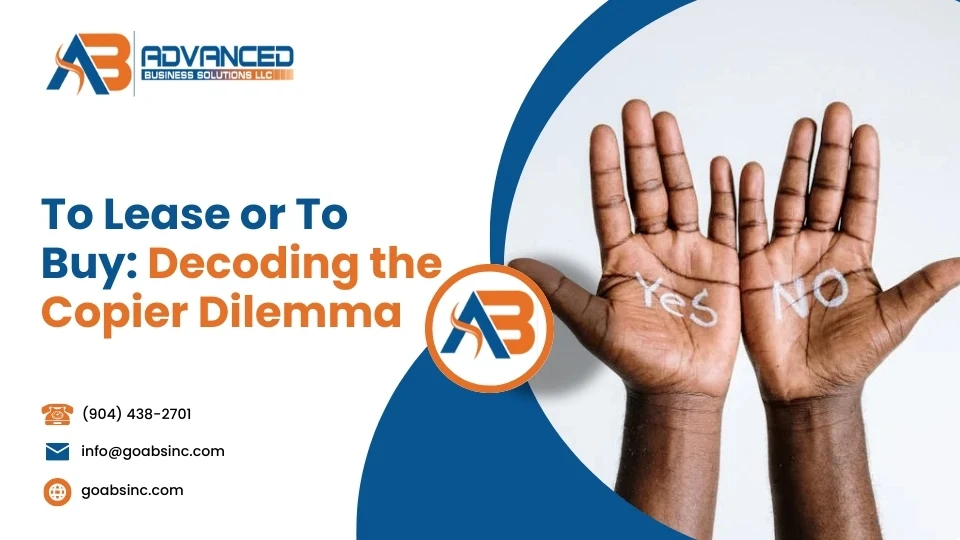



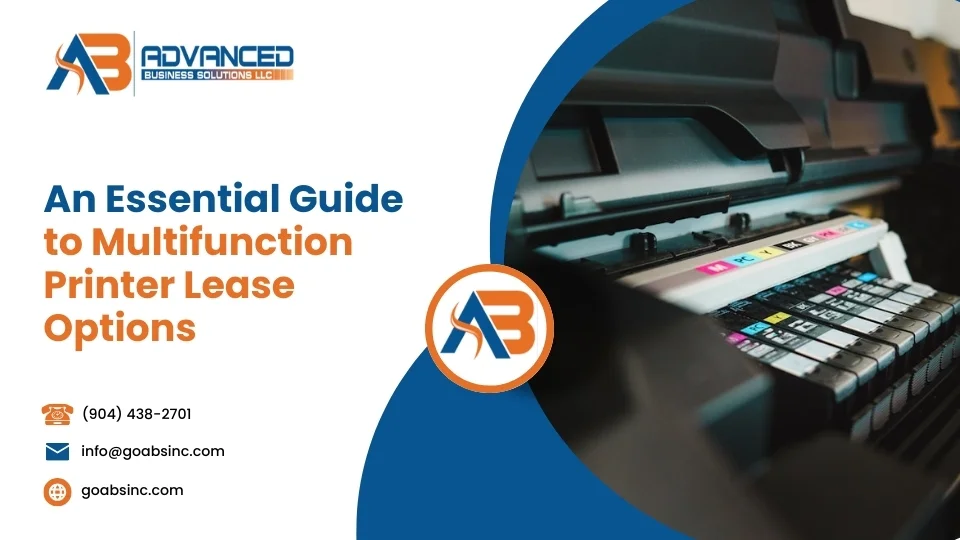
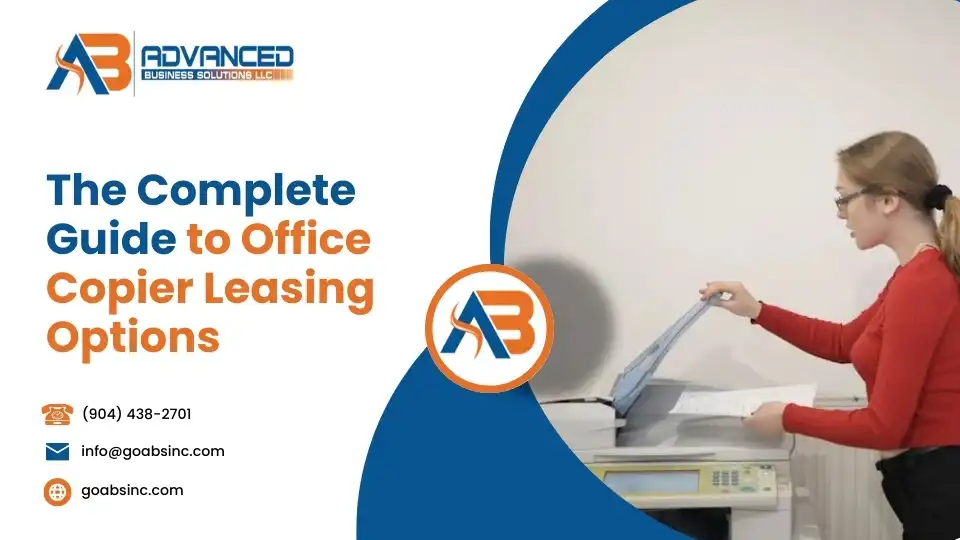
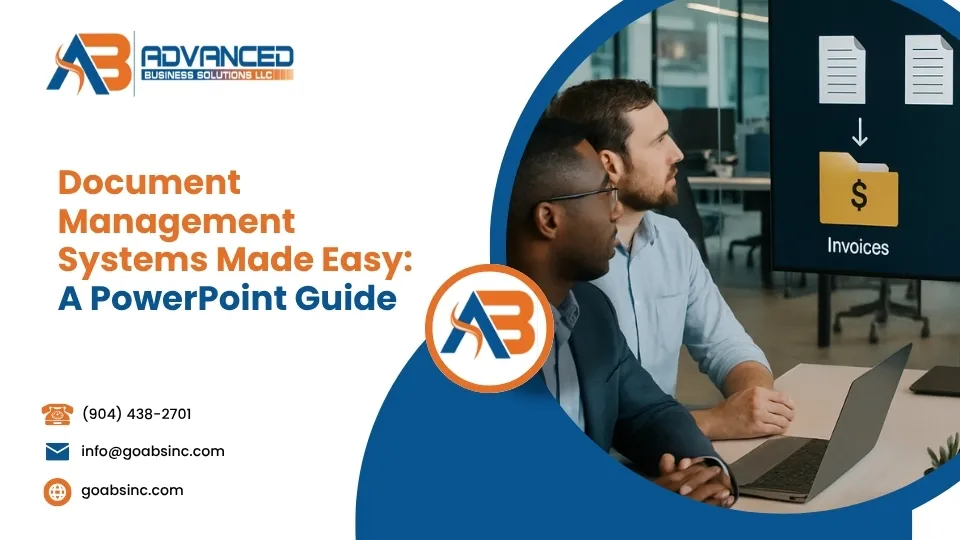
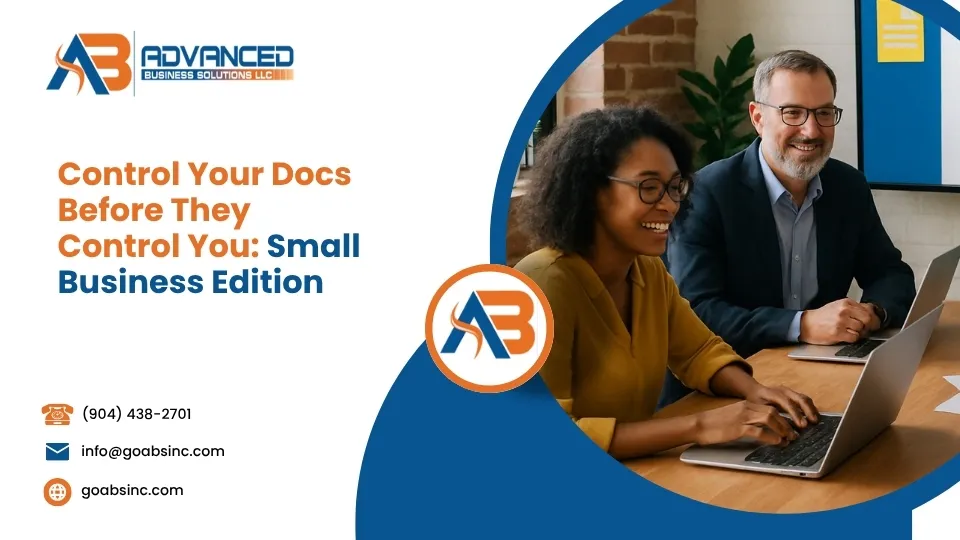
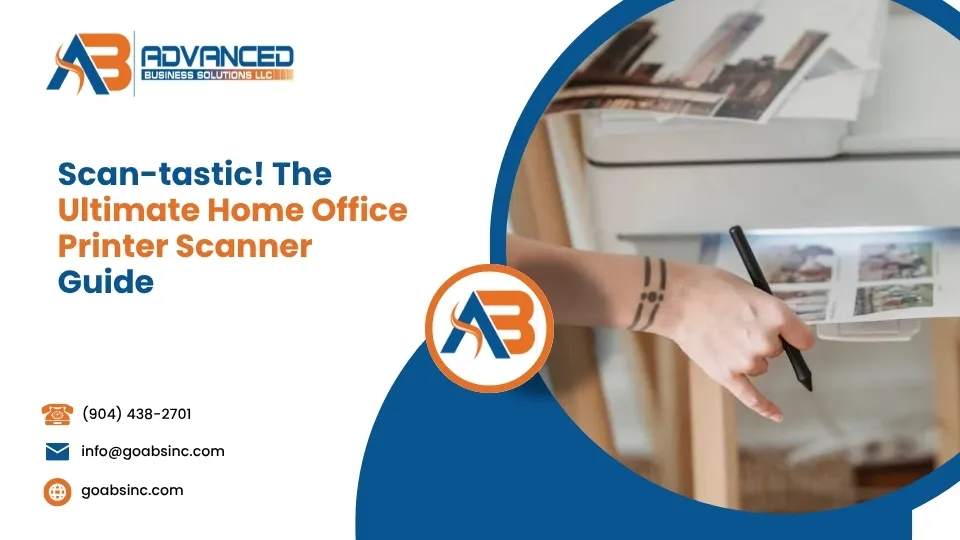
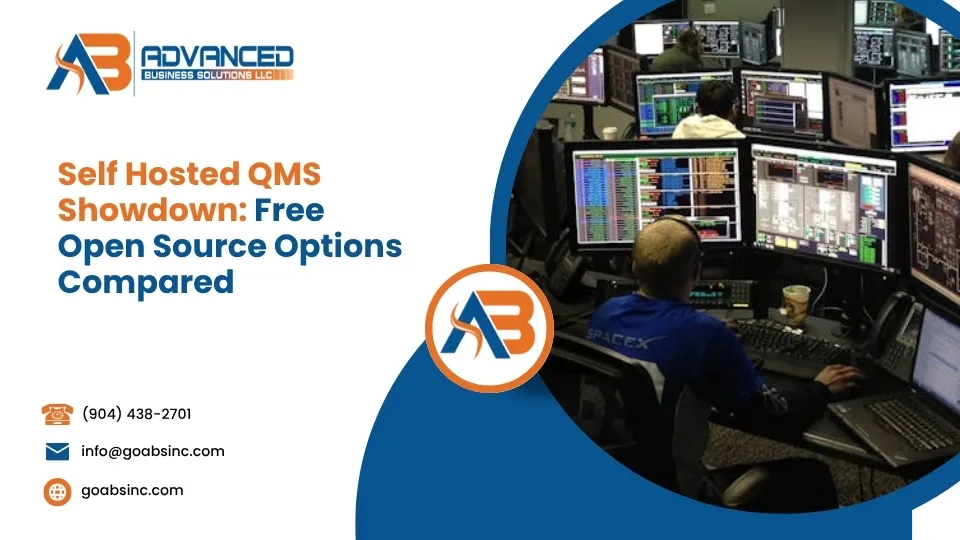
Comments are closed